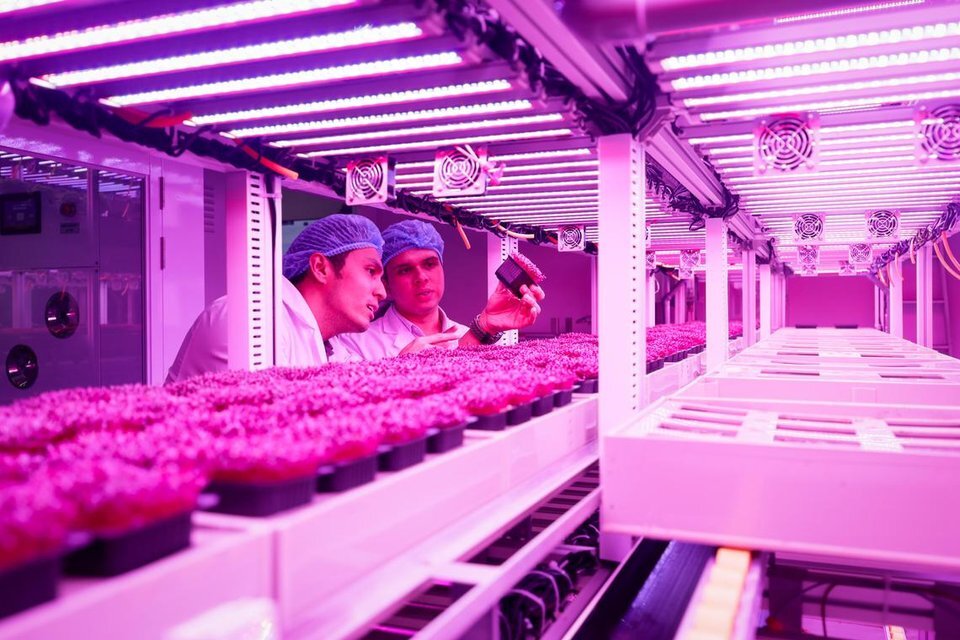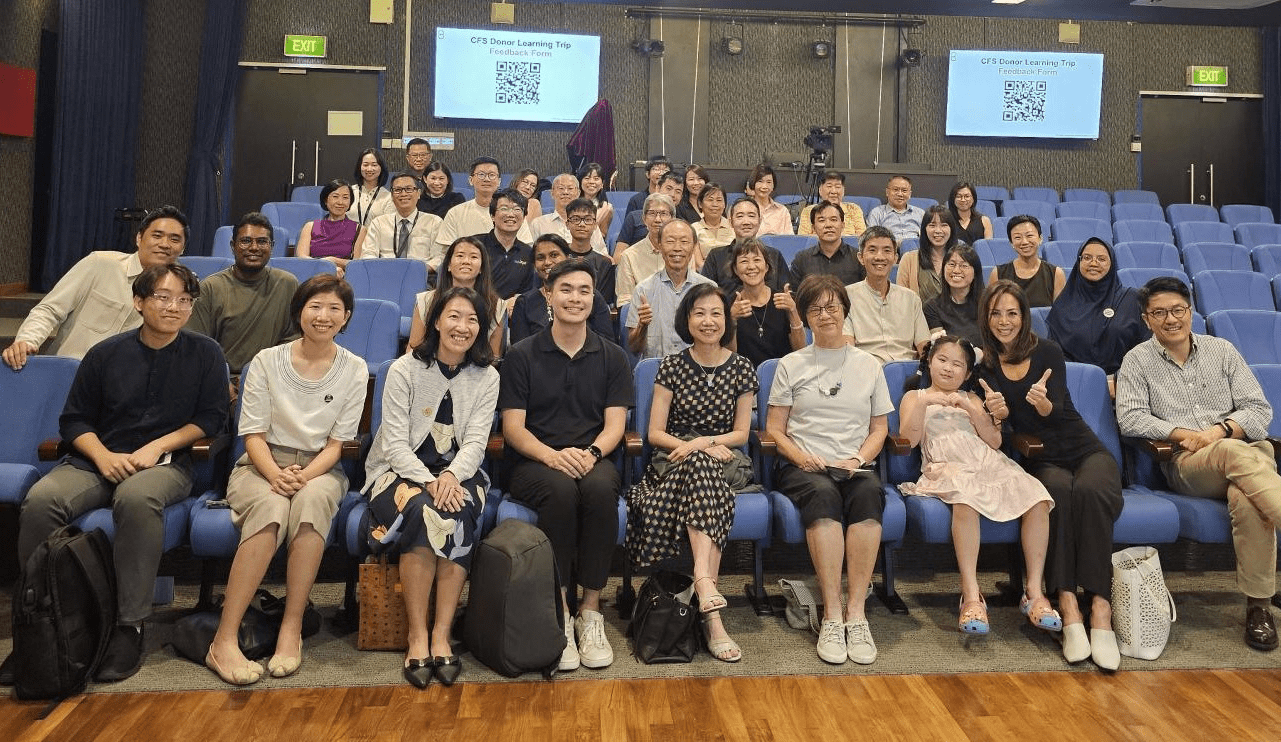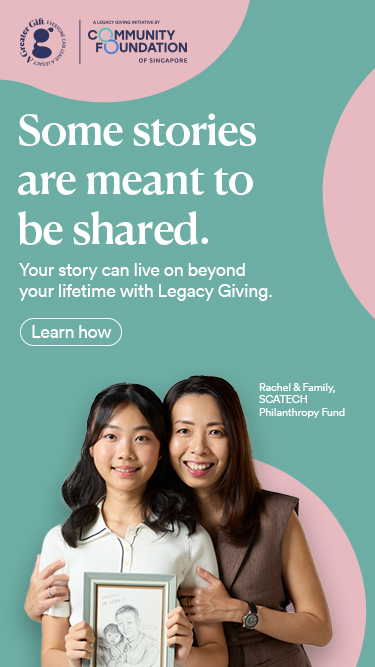Donor Learning Trip – St Joseph’s Home’s Inspirational Inter-Generation Programme

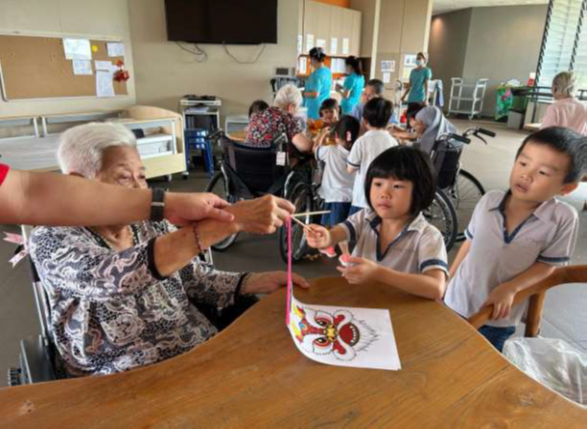
At CFS, we work closely with over 400 well-governed charities to link donors to programmes that achieve meaningful impact. With our deep experience, we understand the importance of improving lives through community initiatives. St Joseph’s Home (SJH) is a good example of this.
About St Joseph’s Home (SJH)
SJH is a not-for-profit organisation set up by the Catholic Welfare Services in 1978 to provide shelter, care and love for the aged and destitute, regardless of race or religion.
Since then, SJH has innovated to pioneer unique models of care that meet the community’s evolving needs. This includes the hydrotherapy, night respite care for persons with dementia and the co-located Infant and Childcare Centre (ICC).

SJH’s beautiful premise is situated at the heart of the Jurong Innovation District. It has wheelchair-accessible playgrounds, walkways and community spaces such as Café Verona and Funhouse to encourage chance interactions. Spaces are also configurable to accommodate structured programmes that require more privacy and comfort.
An Intergenerational Care Community
In August 2017, SJH pioneered Singapore’s first intergenerational community with an Infant and Childcare Centre (ICC) co-located in a nursing home.
Infants as young as two months old to children up to age six get daily opportunities lasting 45 to 90 minutes to interact with nursing home residents. Children and residents engage in activities such as shared newspaper reading, puzzles, LEGO building, singing and storytelling.
These interactions form part of the children’s curriculum, where they learn about culture, and pick up motor and literacy skills. They also form part of the resident’s daily care, which is made possible only because of the close collaboration between the ICC and the clinical team of SJH.
Our donors were recently invited to visit St Joseph’s Home and witnessed their recently-launched intergenerational art therapy programme. Joy was evident on the faces of both residents and children as they waved to one another.

Intergenerational Programmes as a Therapeutic Intervention
With all the buzz around intergenerational programmes (IGPs), here’s what sets SJH apart.
Every programme has a therapeutic outcome and St Joseph’s Home Infant and Childcare Centre teachers work closely with SJH’s clinical team to develop IGPs that:
- Resonate with both generations
- Intentionally facilitate conversations and relationship-building
- Have therapeutic outcomes such as improve mood and increased social wellbeing
Our visit coincided with the fifth of eight sessions conducted by an Occupational Therapy Assistant. Residents and children were collaborating on a calligraphy painting.
Mdm Tan*, one of the participants who had been hesitant to join social activities, is observed laughing and making eye contact with Estelle, the spritely five-years-old that she’s paired with.
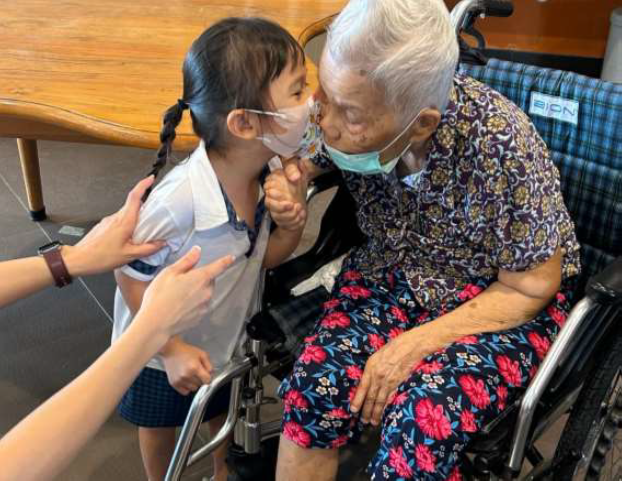
Another resident, Mdm Wee*, has shown remarkable improvement, eating better and faster on days when she meets the children.
It’s inspiring to hear about Mdm Wee’s progress. She used to take two hours for lunch, often breathless and discouraged, preferring to stay in her bedroom. Now, after just a few sessions, she’s more motivated, energetic, and engaged, even asking about the children. She can now finish her meal in half an hour
Imelda Anthony, Principal of St Joseph’s Home Infant & Childcare Centre
The donors of CFS witnessed the energy within the group and comfortable interactions. These took hours to foster, and cannot be justly put in words.
Developing such results is an art. It calls for a careful integration of the medical and psychosocial needs of the residents, their unique interests and the developmental stage and disposition of the child that they’re paired with.
Teachers need to be equipped with an understanding of the residents and constantly communicate with the therapist before and throughout the IGP to ensure that the therapeutic outcomes are met.
Intergenerational Programmes as Education
“Educating the mind without educating the heart is no education at all.” – Aristotle
Since its inception in 2017, the teachers at St Joseph’s Home Infant and Childcare Centre have focused on investing in the character of the children. Empathy, kindness, and respect are not just taught but also demonstrated.
Children observe the staff and teachers interacting with residents, learning to respectfully gain the attention of those who may be weak or frail. They also practise handling wheelchairs and being considerate in their movements and volume around residents.
During the IGP, children will progressively pick up the residents’ names, interests, or areas in which they might need help with. For example, children might help residents by repeating instructions closer to their ears or uncapping the tools that require more fine motor skills.
Intergenerational Programmes as an Innovative Care Model
As pioneers in integrating the preschool curriculum with elderly-inclusive activities, SJH has learned and experimented along the way, all while remaining committed to their vision of providing person-centred, dignified care.
Their experience has since inspired other organisations. Looking ahead, SJH envisions the intergenerational programme as an integrated part of person-centred, holistic care for elderly residents. They continue to experiment with various programme types and structures, monitoring their impact and collaborating with research partners.
How You Can Help
St Joseph’s seeks $150,000 annually to run the programme, which involves childcare teachers, music, art, and occupational therapists that serve 20 children and 40 to 60 elderly residents. To find out how to become a CFS donor, click here.
*Names changed to protect confidentiality.
At CFS, we work closely with over 400 well-governed charities to link donors to programmes that achieve meaningful impact. With our deep experience, we understand the importance of improving lives through community initiatives. St Joseph’s Home (SJH) is a good example of this.
About St Joseph’s Home (SJH)
SJH is a not-for-profit organisation set up by the Catholic Welfare Services in 1978 to provide shelter, care and love for the aged and destitute, regardless of race or religion.
Since then, SJH has innovated to pioneer unique models of care that meet the community’s evolving needs. This includes the hydrotherapy, night respite care for persons with dementia and the co-located Infant and Childcare Centre (ICC).

SJH’s beautiful premise is situated at the heart of the Jurong Innovation District. It has wheelchair-accessible playgrounds, walkways and community spaces such as Café Verona and Funhouse to encourage chance interactions. Spaces are also configurable to accommodate structured programmes that require more privacy and comfort.
An Intergenerational Care Community
In August 2017, SJH pioneered Singapore’s first intergenerational community with an Infant and Childcare Centre (ICC) co-located in a nursing home.
Infants as young as two months old to children up to age six get daily opportunities lasting 45 to 90 minutes to interact with nursing home residents. Children and residents engage in activities such as shared newspaper reading, puzzles, LEGO building, singing and storytelling.
These interactions form part of the children’s curriculum, where they learn about culture, and pick up motor and literacy skills. They also form part of the resident’s daily care, which is made possible only because of the close collaboration between the ICC and the clinical team of SJH.
Our donors were recently invited to visit St Joseph’s Home and witnessed their recently-launched intergenerational art therapy programme. Joy was evident on the faces of both residents and children as they waved to one another.

Intergenerational Programmes as a Therapeutic Intervention
With all the buzz around intergenerational programmes (IGPs), here’s what sets SJH apart.
Every programme has a therapeutic outcome and St Joseph’s Home Infant and Childcare Centre teachers work closely with SJH’s clinical team to develop IGPs that:
- Resonate with both generations
- Intentionally facilitate conversations and relationship-building
- Have therapeutic outcomes such as improve mood and increased social wellbeing
Our visit coincided with the fifth of eight sessions conducted by an Occupational Therapy Assistant. Residents and children were collaborating on a calligraphy painting.
Mdm Tan*, one of the participants who had been hesitant to join social activities, is observed laughing and making eye contact with Estelle, the spritely five-years-old that she’s paired with.

Another resident, Mdm Wee*, has shown remarkable improvement, eating better and faster on days when she meets the children.
It’s inspiring to hear about Mdm Wee’s progress. She used to take two hours for lunch, often breathless and discouraged, preferring to stay in her bedroom. Now, after just a few sessions, she’s more motivated, energetic, and engaged, even asking about the children. She can now finish her meal in half an hour
Imelda Anthony, Principal of St Joseph’s Home Infant & Childcare Centre
The donors of CFS witnessed the energy within the group and comfortable interactions. These took hours to foster, and cannot be justly put in words.
Developing such results is an art. It calls for a careful integration of the medical and psychosocial needs of the residents, their unique interests and the developmental stage and disposition of the child that they’re paired with.
Teachers need to be equipped with an understanding of the residents and constantly communicate with the therapist before and throughout the IGP to ensure that the therapeutic outcomes are met.
Intergenerational Programmes as Education
“Educating the mind without educating the heart is no education at all.” – Aristotle
Since its inception in 2017, the teachers at St Joseph’s Home Infant and Childcare Centre have focused on investing in the character of the children. Empathy, kindness, and respect are not just taught but also demonstrated.
Children observe the staff and teachers interacting with residents, learning to respectfully gain the attention of those who may be weak or frail. They also practise handling wheelchairs and being considerate in their movements and volume around residents.
During the IGP, children will progressively pick up the residents’ names, interests, or areas in which they might need help with. For example, children might help residents by repeating instructions closer to their ears or uncapping the tools that require more fine motor skills.
Intergenerational Programmes as an Innovative Care Model
As pioneers in integrating the preschool curriculum with elderly-inclusive activities, SJH has learned and experimented along the way, all while remaining committed to their vision of providing person-centred, dignified care.
Their experience has since inspired other organisations. Looking ahead, SJH envisions the intergenerational programme as an integrated part of person-centred, holistic care for elderly residents. They continue to experiment with various programme types and structures, monitoring their impact and collaborating with research partners.
How You Can Help
St Joseph’s seeks $150,000 annually to run the programme, which involves childcare teachers, music, art, and occupational therapists that serve 20 children and 40 to 60 elderly residents. To find out how to become a CFS donor, click here.
*Names changed to protect confidentiality.
- Related Topics For You: AGEING WELL, CHARITY STORIES, CHILDREN, DONOR STORIES, DONOR-ADVISED FUND, EVENTS
